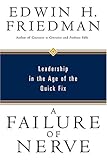When "nice" is a health hazard

I recently encountered a group of denominational leaders who held views on biblical authority and sexual ethics that were diametrically opposed to the vast majority of their members and churches.
How is such a situation sustainable? Easily.
Most of the members are unaware of the views shared by their denomination's leadership. The conspiracy of silence is maintained in the interest of "harmony".
Key evangelicals within the denomination simply get on with their ministries in the local churches. Those same churches keep the denomination afloat financially. They live in a parallel universe preferring to ignore an unpleasant reality, hoping it will not get worse. But it does.
Here we have a snapshot of a denomination in the advanced stages of decline.
The belief systems that destroy dynamic movements from within are like viruses.
A virus is a small infectious agent that can only survive inside a host. We aren't sure if viruses are a form of life, or organic structures that interact with living organisms. A virus has no sense of its “self”. No identity. It lives by invasion and occupation. It cannot reproduce outside a host cell.
Every human organism contains “opportunistic infections.” The presence of a pathogen is not enough to cause infection. There must also be a lack in the immune system of the host.
The job of the immune system is to preserve an organism's integrity against invasion.
A dynamic movement must maintain a clear sense of its identity, even at the cost of "harmony." You don’t reason with a virus. You don’t form a consensus. You take a stand. You define who you are.
The role of movement leaders is to protect the integrity of the movement. Confronted with the threat of a virus, empathy will result in destruction.
Conversely, if a leader in any relational system is both self-defined and non-anxious, that leader has the best possible chance of restoring health to the system. This strategy works in families, churches, movements and even nations.
Thanks to the late Edwin Friedman for stimulating my thinking on this topic.

"A Failure of Nerve: Leadership in the Age of the Quick Fix" (Edwin H. Friedman)
